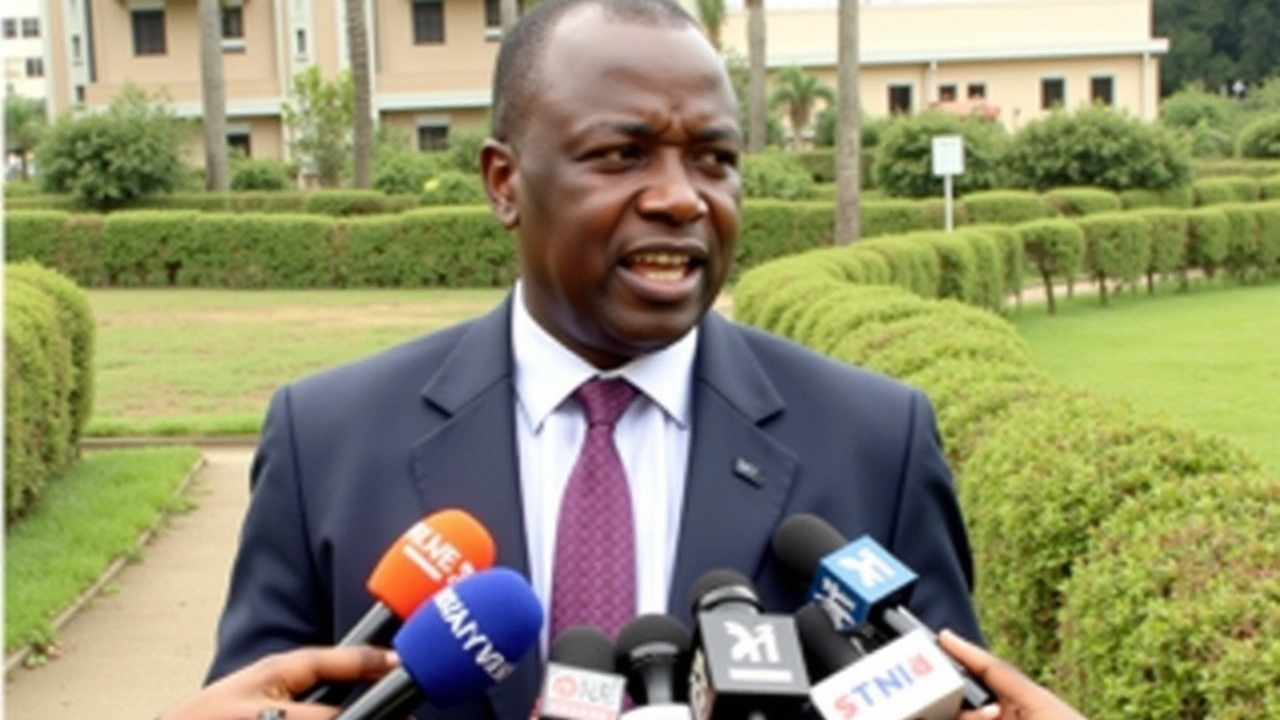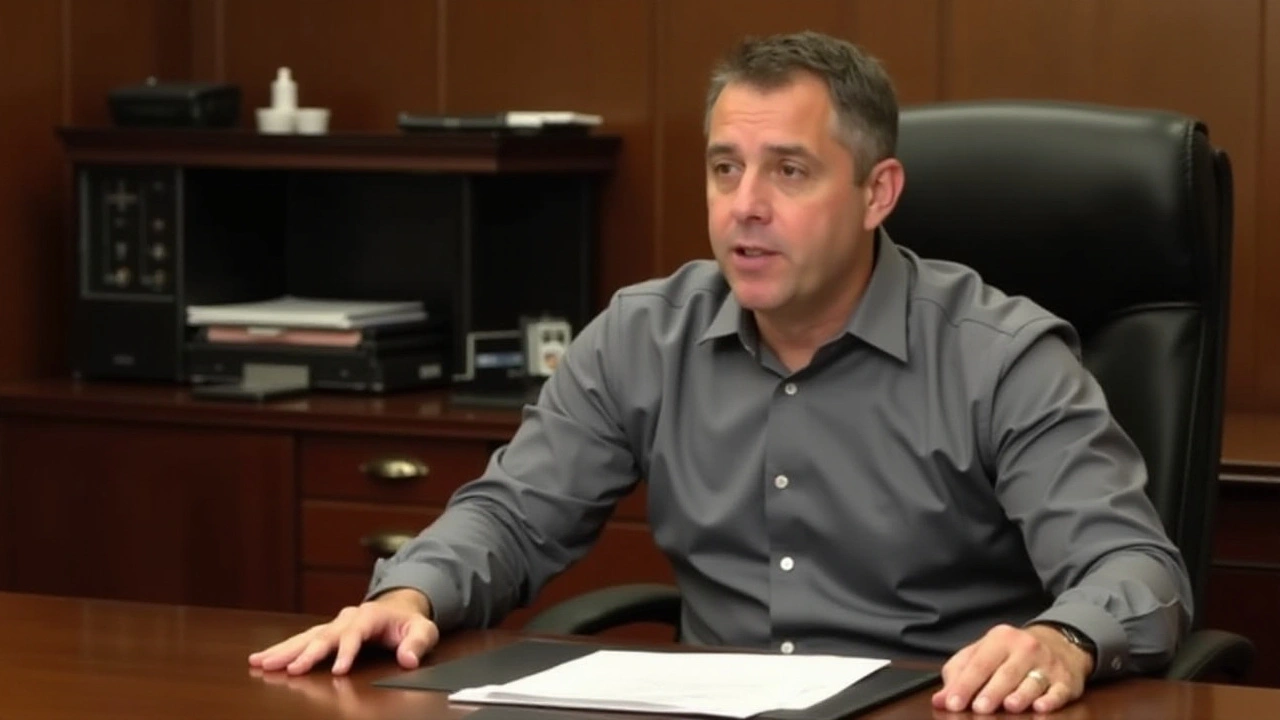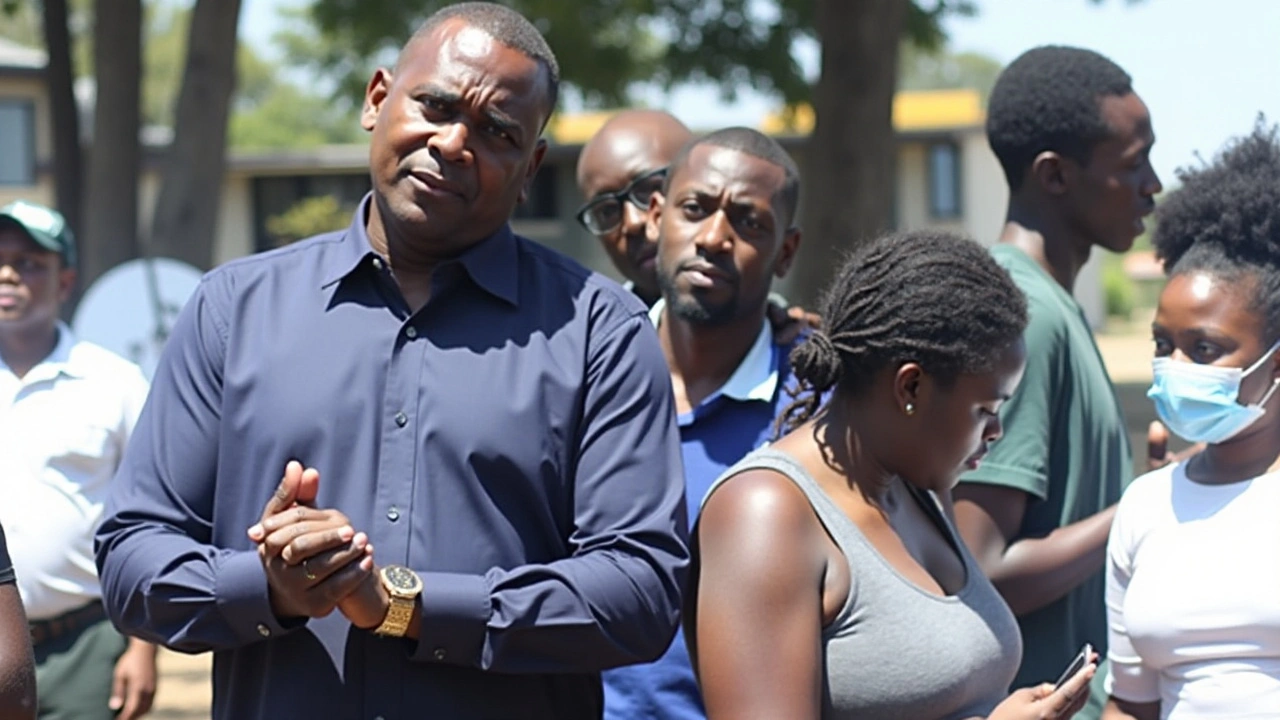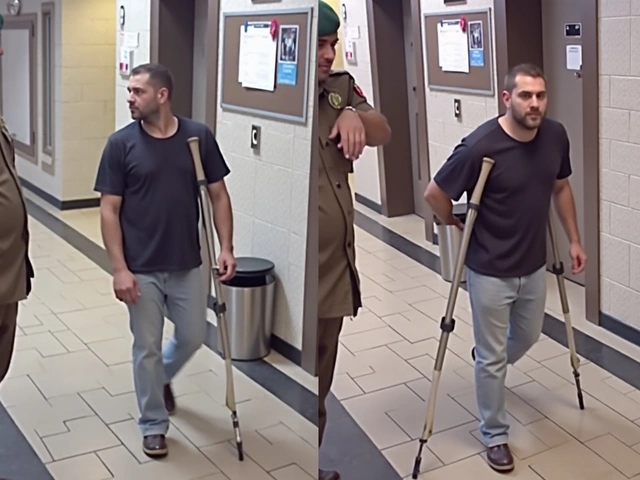Public Outcry Over Increasing Abductions and Killings
In recent times, a disturbing trend has emerged in Kenya, characterized by a series of abductions and extrajudicial killings. This alarming situation has stirred public discourse and brought high-ranking officials into the conversation. Among them is Public Service Cabinet Secretary Justin Muturi, who has publicly called upon President William Ruto to take decisive action in curbing this harrowing phenomenon. The venue was the Nairobi Funeral Home, a somber setting where Muturi extended his condolences to families mourning their abducted loved ones from Mlolongo. His words echoed a growing sentiment that urgent measures are necessary to halt this crisis.
A Call for Government Accountability
At the heart of Muturi's address was a scathing critique of governmental failure to protect its citizens adequately. He emphatically reminded the audience that the primary role of any government is to ensure the safety and security of its people. In his view, the escalating incidences of abductions and killings represent a significant breach of this fundamental duty. According to Muturi, these grave offenses should indeed challenge the moral compass of leaders at all levels. He raised the critical question of accountability, urging not only a reinforcement of responsibility among policymakers but also proposing the formation of a commission of inquiry.
Proposed Commission of Inquiry
The suggestion of an inquiry commission is seen as a pragmatic step toward understanding and resolving the root causes of these incidents. Muturi outlined that such a body should feature a diverse composition of members from the Law Society of Kenya, religious groups, and civil society organizations. This inclusive approach aims to ensure a comprehensive investigation, shedding light on the circumstances surrounding these tragedies. Complementing this proposal is a call for openness and transparency, especially concerning the families affected by these heinous acts.
Community and Stakeholder Involvement
Makueni Senator Dan Maanzo, present at the same gathering, lent his voice to Muturi's demands. He bravely underscored the need for community engagement, urging citizens to come forward with any information regarding these crimes. However, in a distressing revelation, he pointed out that many families of the abducted have allegedly faced threats aimed at coercing silence. The fear felt by these families adds yet another layer of complexity to an already volatile situation. This revelation aligns with reports from young abductees who have described their experiences as akin to military confinement, thus highlighting the grave human rights implications involved.
The Menacing Silence
The rampant climate of fear and intimidation poses significant challenges. Despite these threats, Maanzo and Muturi have emphasized the necessity for courage and solidarity in the face of adversity. Their message is clear: reporting these violations is vital for effectuating change. They have called for the support and protection of those who step forward, underscoring the critical need for a secure system where victims and witnesses can express their grievances without fear of reprisal.

Kenya’s Diplomatic Focus Questioned
In a further critique, Muturi expressed his bewilderment over Kenya's diplomatic priorities, particularly its involvement in international conflict resolutions such as those in the Democratic Republic of Congo. He questioned the rationale behind engaging in external affairs while dire issues persist within the country's own borders. This irony, he asserted, indicates a troubling misalignment of priorities, with internal security matters seemingly taking a back seat.
A Reassessing of Priorities
Muturi’s critique is a clarion call for a shift in focus. By emphasizing local issues, he is advocating for a recalibration of governmental actions and resources, ensuring that domestic welfare takes precedence over international engagements. His assertion serves to remind leaders that charity begins at home, urging them to protect their young population against the backdrop of forced disappearances and killings.
Young Lives Lost: The Mlolongo Case
The impetus for these urgent calls to action is a tragic incident that recently unfolded in Mlolongo. Two of four young individuals, who had been reported missing, were discovered lifeless at the Nairobi Funeral Home. This chilling occurrence adds weight to the arguments posited by both Muturi and Maanzo. The depth of pain and loss felt by the families is palpable, and their quest for justice continues unabated. For over a month, they had been engaged in an unyielding search for answers concerning the disappearances.
A Continuing Struggle for Justice
For these families, the journey does not end with the discovery of the bodies. Instead, it marks the beginning of a different battle - a relentless struggle for justice. Their grief now intersects with activism as they join forces with those endeavoring to shed light on the fate of missing individuals across Kenya. Their courage in the face of despair galvanizes the movement for increased scrutiny and intervention regarding these widespread injustices.

Abductions as a National Concern
The issue of abductions in Kenya is taking on national significance, compelling citizens and leaders alike to examine deeper systemic issues. These incidents not only threaten the individual safety of the abductees and their families but also raise concerns about governance and civil liberties. Muturi's potent assertion that governments exist to safeguard, not jeopardize lives, resonates with many. His call for earnest dialogue underscores the fundamental question of how a nation can reconcile episodes of violence within its borders while maintaining external diplomatic commitments.
The Way Forward
As discussions around these sensitive topics intensify, there is a palpable sense of urgency. The need for coherent, actionable strategies is more pressing than ever, with the hope that such measures will bring reprieve to those affected and prevent future occurrences. The engagement of diverse societal groups in a proposed commission of inquiry is perceived as a crucial step in unveiling the truth and fostering national healing. These efforts, combined with community vigilance and accountability, represent a foundation upon which future safety can be built, ensuring the protection and dignity of every Kenyan citizen.






Write a comment